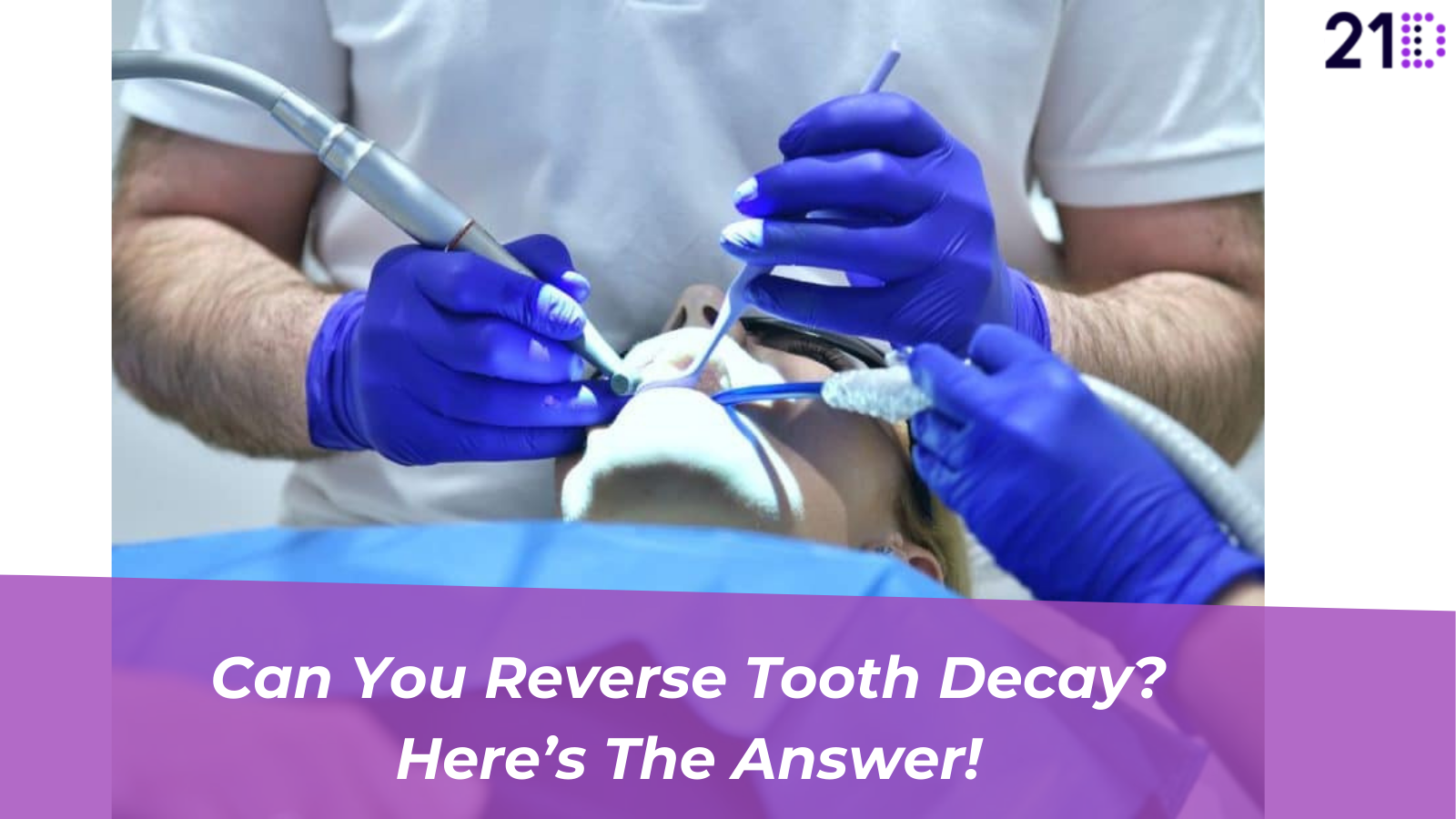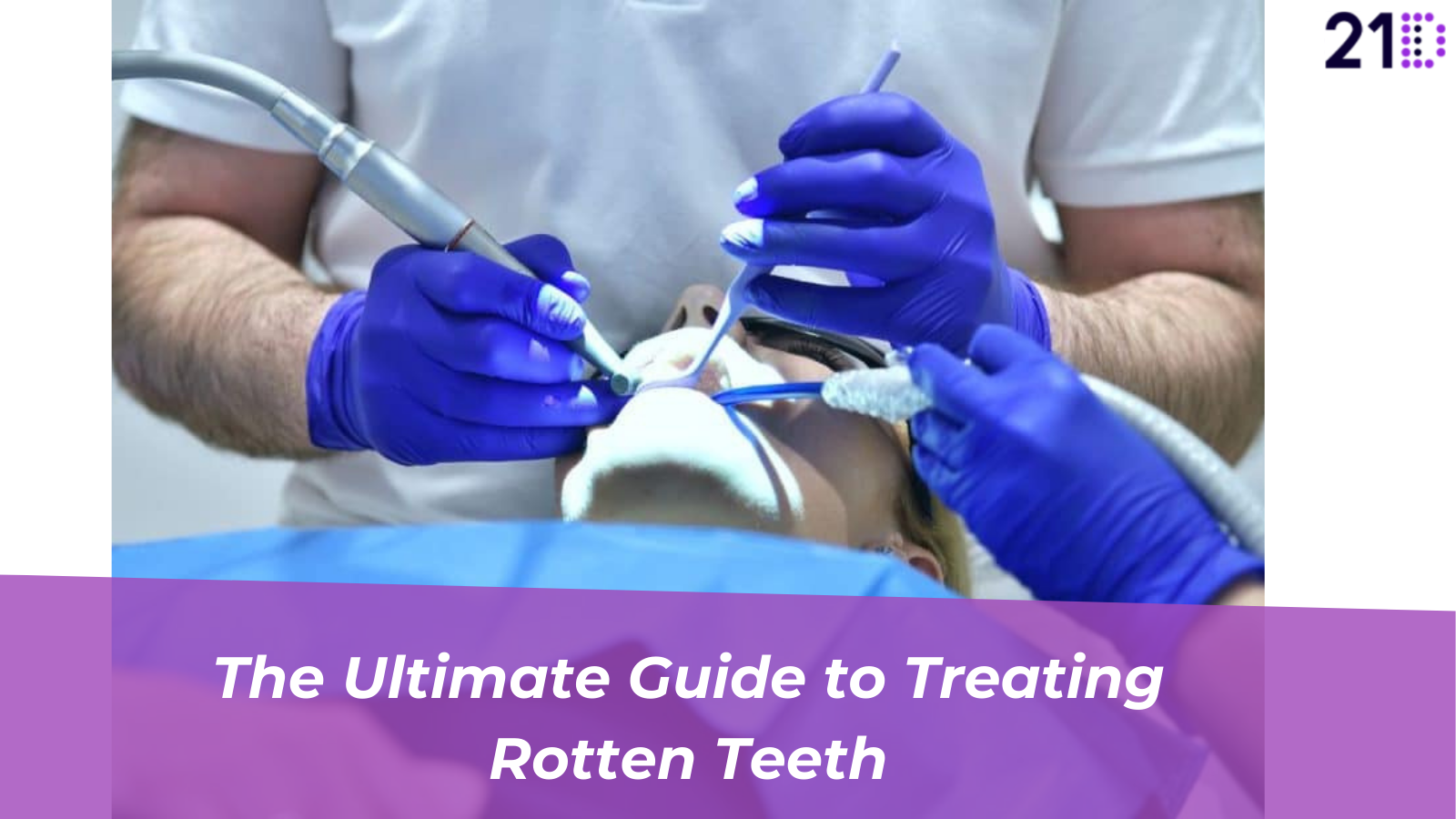Missing teeth can be a source of frustration, impacting your smile and your ability to eat and speak confidently. Luckily, modern dentistry offers two excellent solutions: dentures and implants. But with these options, choosing the right one can feel overwhelming. This blog on dentures vs implants is here to help!
Moreover, we’ll break down the key differences between dentures and implants, delving into cost, functionality, and maintenance. We’ll explore the pros and cons of each option so you can make an informed decision about your smile and well-being.
So whether you’re missing a single tooth or an entire set, this blog will equip you with the knowledge you need to achieve a healthy, confident smile. So, please grab a cup of coffee, settle in, and let’s explore the world of dentures and implants!
Historical Context
Imagine a world without smiling freely or enjoying your favourite foods due to missing teeth. This was the reality for people for centuries. While the desire for a complete smile has existed for a long time, the methods have evolved dramatically.
Let’s delve into the historical context of implants vs dentures, the two main approaches to replacing missing teeth.
Dentures: A Centuries-Old Fix
The story of dentures dates back thousands of years. Ancient civilisations used materials like animal teeth, ivory, and even seashells to fill gaps left by missing teeth. These early attempts could have been better, often causing discomfort and offering limited functionality. Over time, dentures gradually improved, incorporating materials like wood, metal, and, eventually, porcelain. However, the basic concept of removable teeth remained the same for centuries.
Implants: A Modern Marvel
The concept of implants, however, took a completely different path. While the idea of replacing tooth roots with artificial substitutes existed in ancient times, it was in the 20th century that advancements in materials and surgical techniques made them a viable option. The development of biocompatible materials like titanium allowed implants to fuse with the jawbone, creating a stable and permanent foundation for artificial teeth.
Dentures Vs Implants: Definitions
The first step to understanding the difference between implants vs dentures is to learn their definitions. Let’s break down the basics:
Dentures:
These are removable replacements for missing teeth. They can be full dentures, replacing all your teeth in your upper or lower jaw, or partial dentures, filling in gaps where some teeth are still present. Dentures are typically made of acrylic and may require special adhesives to stay in place.
Dental Implants:
These are more permanent solutions compared to dentures. They are surgically inserted into your jawbone, acting as artificial tooth roots. A crown, the tooth’s visible part, is attached to the implant. This creates a single, fixed replacement tooth that looks and functions more like a natural tooth.
So, if you want a permanent smile, 21D is your perfect choice. You can book a complimentary session with our expert dental implant specialist today!
Dentures Vs Implants: Procedure
Which is better, dentures vs. implants, to replace missing teeth? Understanding the procedures involved in both techniques can help you make an informed decision.
Dentures:
- Relatively Simple Procedure: Dentures typically involve taking impressions of your mouth and gums. These impressions create a custom-made acrylic base that fits snugly over your gums. Artificial teeth are then attached to the base, replicating the appearance of natural teeth.
- No Surgery Required: Dentures are created and fitted without any surgical procedures. This makes them a good option for individuals who are not comfortable with surgery or have underlying health conditions that may make them unsuitable for more invasive procedures.
- Relatively Quick Process: Depending on the complexity of your case, you can receive your dentures within a few weeks of your initial appointment.
Dental Implants:
- Surgical Procedure: Dental implants involve placing small titanium posts surgically into your jawbone. These posts act as artificial tooth roots, providing a foundation for the replacement teeth.
- Multi-Stage Process: The implant procedure typically involves several stages. First, the implants are placed in the jawbone. Then, you’ll need a healing period, which can take several months, to allow the bone to fuse with the implants. Finally, once healed, the permanent teeth (crowns or bridges) are attached to the implants.
- Longer Process: Compared to dentures, the implant process can take several weeks from start to finish.
Implants Vs Dentures: Cost
In this section of dentures vs implants, we’ll discuss the cost of getting both. So here’s a basic breakdown of what you can expect to pay for each in the UK:
Dentures:
- Generally Less Expensive: Dentures typically cost less upfront compared to implants. Depending on the type and materials used, a complete set of dentures can range from £350 to £2,500.
- Additional Costs May be Required: Dentures might need relining or replacement every 5-10 years, which adds to the overall cost over time.
- Possible NHS coverage: In some cases, the NHS might partially cover the cost of dentures, particularly if you qualify for certain benefits.
Dental Implants:
- Higher Initial Cost: Dental implants involve surgical procedures and specialised materials, making them more expensive upfront. A single implant can cost from £1,500 to £3,000, and replacing a whole row of teeth with implants can reach £20,000 or more.
- Long-Term Investment: While initially expensive, implants are considered a long-term investment. They can last for decades with proper care, potentially saving you money in the long run compared to repeatedly replacing dentures.
- No NHS Coverage: The NHS does not typically cover dental implants, so you’d likely need to pay privately. Hence, we at 21D offer EMI payment solutions to our patients. So book a free consultation with our team today.
Dentures Vs Implants: Benefits
Let’s now understand the benefits of dentures vs implants. These benefits will help you make the best decision for your smile and overall well-being.
Dentures:
- Affordable: Dentures are typically the more cost-effective option compared to implants.
- Quick Turnaround: You can receive dentures relatively quickly after your initial appointment.
- No Surgery Required: Dentures are fitted without surgery, making them a good option for individuals with health concerns that may prevent surgery.
Dental Implants:
- Natural-Looking and Feeling: Implants mimic the look and feel of natural teeth, offering a more natural smile and improved chewing ability.
- Improved Speech: Dentures can sometimes slip, affecting your speech. Implants are permanently anchored in your jaw, preventing slipping and improving speech clarity.
- Long-Lasting: With proper care, implants can last for decades, potentially eliminating the need for replacements as often as you might need with dentures.
- Preserve Jawbone Health: Implants stimulate the jawbone, preventing bone loss that can occur with missing teeth. This can help maintain the overall structure of your face and prevent future dental issues.
It’s important to remember that every individual’s situation is unique. Consulting with our surgical clinicians is crucial to discuss your specific needs and determine which option, dentures or implants, best fits you. So book a free session today.
Implants Vs Dentures: Disadvantages
While dentures and implants can help replace missing teeth and improve your smile, they each have drawbacks. Understanding these disbenefits of implants vs dentures can assist you in deciding which option might be best for you.
Dentures:
- Reduced Chewing Ability: Dentures can slip or move around in your mouth, making it difficult to chew certain foods. This can lead to digestive issues and affect your enjoyment of meals.
- Bone Loss: Dentures don’t stimulate the jawbone like natural teeth. Over time, this can lead to bone loss, which can change the shape of your face and make it harder to wear dentures comfortably.
- Discomfort and Irritation: Dentures can rub against your gums and cause soreness. They may also feel bulky or awkward in your mouth, especially when you first get them.
- Maintenance: Dentures must be cleaned and soaked regularly to prevent bacteria buildup. You may also need to have them relined or replaced every few years.
Dental Implants:
- Cost: Implants are typically more expensive than dentures upfront. This includes the price of the implants, surgery, and any additional procedures needed. But 21D offers easy EMI options to regain your permanent smile without affecting your pocket.
- Surgery: Placing implants requires minor surgery, which carries some inherent risks like infection and discomfort.
- Healing Time: It takes time for the implants to fuse with your jawbone before you can attach the final teeth. You might need temporary dentures or go without teeth in that area during this period.
- Not Suitable for Everyone: Not everyone is a good candidate for implant surgery due to health conditions, jawbone density, and other factors.
Dentures Vs Implants: Maintenance and Care
Both dentures and dental implants are ways to replace one or more missing teeth. However, the process of maintenance and care highly differs. The next segment in dentures vs implants is to compare them on the basis of maintenance and care:
Dentures:
- Cleaning Is Vital: Dentures must be cleaned daily to prevent bacteria from building up.
- Overnight Care: Remove your dentures at night and soak them in a unique solution or plain water. This helps them keep their shape.
- Handle With Care: Dentures can break if dropped, so take caution when cleaning them.
Dental Implants:
- Treat Them like Natural Teeth: Implants are the most similar to real teeth. Brush twice daily, floss regularly, and see your dentist for checkups.
- No Extra Steps: Unlike dentures, dental implants don’t need to be removed or soaked.
How To Choose Between Dentures Vs Implants?
Choosing between dentures and implants is an important decision that depends on various factors. Both options have pros and cons, and understanding these factors can help you make an informed choice.
Tooth Loss Severity:
The severity of your tooth loss plays a significant role in determining whether dentures or implants are better for you. Dentures may be a suitable choice if you have lost most or all of your teeth. However, implants may be more appropriate if you have only lost a few teeth or need to replace individual teeth.
Bone Health:
The health of your jawbone is crucial when considering implants. Implants require sufficient bone density to support the artificial tooth roots. If your jawbone has deteriorated due to tooth loss or other factors, you may need bone grafting before implant placement. Dentures, on the other hand, do not rely on bone density for support.
Longevity:
Implants are known for their durability and longevity. With proper care, implants can last a lifetime, making them a cost-effective option in the long run. Dentures, while also durable, may need to be replaced or relined periodically as the shape of your mouth changes over time.
Maintenance:
Dentures and implants require different maintenance routines. Dentures must be removed and cleaned regularly to prevent bacteria buildup and maintain oral hygiene. Once integrated into the jawbone, implants can be cared for like natural teeth with regular brushing and flossing.
Comfort and Functionality:
Implants offer excellent stability and functionality compared to dentures. They look and feel like natural teeth, allowing you to eat, speak, and smile confidently. Dentures may take some time to adjust to and may cause discomfort or difficulty with speaking and eating until you become accustomed to them.
Cost:
Dentures are generally more budget-friendly compared to implants. If financial considerations are crucial for you, dentures might be a sensible choice. Implants, on the other hand, involve a more substantial upfront investment, but they often provide a more durable and long-term solution.
Hence it’s important to talk to a dentist about your individual needs, health, and budget. We at 21D keep in mind all the needs of our patients. We offer one-day dental implant solutions at a pocket friendly cost. So book a free session with our dental experts today and give yourself a permanent smile.
Why Choose 21D For Dental Implants?
Now that you have grasped the knowledge about dentures vs implants, it is essential to note that choosing a good clinic is as necessary. At 21D, we understand the importance of a confident smile and a healthy mouth. We offer a unique and advanced solution for entire jaw dental implant rehabilitation.
Here are some of the reasons to choose 21D as your dental implant clinic:
- Advanced and Cost-Effective Solution: 21D offers the world’s most advanced and cost-effective dental implant solution, providing high-quality care at a competitive price.
- Quick and Efficient Procedure: We use a computer-guided system to deliver implants and fixed teeth in one hour per jaw in 95% of cases, allowing you to regain your smile quickly and efficiently.
- Financing Options: 21D understands that dental implants can be a significant investment, and they offer financing options to make treatment more affordable.
- Experienced Clinicians: Our team of skilled clinicians is dedicated to providing you with the highest quality care and personalized attention.
At 21D we are committed to providing our patients with a comfortable and positive experience throughout the dental implant process. So book a free consultation to discuss your individual needs and answer any questions you may have.
Conclusion
Ultimately, deciding between dentures and implants is a personal choice that should be made in consultation with your dentist. They can assess your needs, health history, and budget to guide you towards the best solution.
Both dentures and implants offer unique benefits and drawbacks. Dentures might be a good fit if you prioritize affordability and a simple procedure. However, implants could be the ideal choice if you seek a long-term, stable solution that feels and functions like natural teeth.
Remember, a healthy smile is crucial for your overall well-being. Don’t hesitate to schedule a consultation with your dentist to discuss your options and take the first step towards a confident, beautiful smile.
FAQs
Am I A Good Candidate For Dentures?
Dentures are suitable for individuals missing all or some teeth who prioritize affordability and a simple solution. However, they might be better for those seeking a long-term, stable option.
Who Can Get Dental Implants?
Dental implants are a good choice for individuals with good jawbone health and those seeking a permanent, natural-feeling solution. However, factors like cost and surgical requirements should be considered.
How Are Dentures Made?
Dentures are custom-made after taking impressions of your mouth and jaw. Several appointments are needed for fitting and adjustments.
Which Is Better, Dentures Or Implants?
There’s no one-size-fits-all answer. Dentures are more affordable, while implants offer better stability and chewing function. Consider your budget, jawbone health, and desired level of functionality




